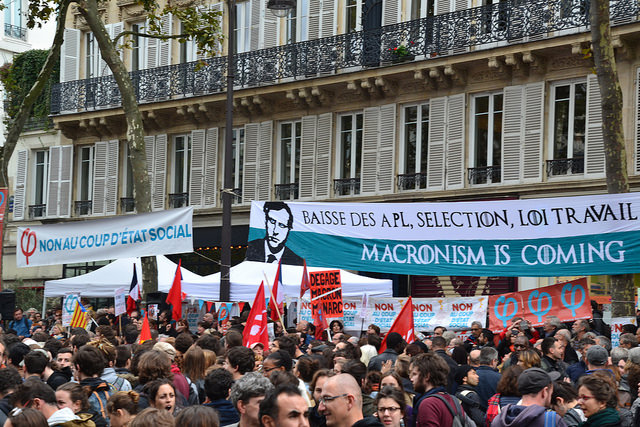There have been riots and roadblocks to protest against President Macron and everything getting more expensive.
What it means: Emmanuel Macron, the President of France, put a new tax on diesel and the French really aren’t happy about it. 136,000 of them protested in the streets over the weekend. Compared to last year, it costs 23 percent more to fill up your car in France.
Protestors say it’s unfair that they should have to pay so much for what is often a necessity (lots of people need a car to get to work) and that it is what’s known as a regressive tax - i.e. it hits the poorest hardest (because they spend a higher percentage of their total income on fuel). But President Macron says that without the money raised by the tax, France can’t invest in renewable energy sources and combat climate change.
Most scientists think climate change itself would impose big economic costs on France (and everywhere else) and that it, too, would affect the poorest the most. But protestors say it’s not just the diesel tax that is making them feel poorer. They say wages are too low, taxes too high, and pensions too stingy. And although most French residents didn’t take part in the protest, two-thirds of them agree with the protests’ aims.
French taxes are indeed high-ish compared to other countries in the world. The average French person gives 30 percent of their salary to taxes, while British workers pay about 13 percent of their salary to the tax collectors, and Saudi Arabians pay basically no income tax at all. But French wages are also higher than average (the average French wage is €2,157 a month, compared to an EU average of €1,520).
French residents also get a lot of tax-funded support from the government: France spends almost a third of its GDP (explainer on what that is here) on social spending, which is more than any other OECD country (OECD is just all the rich-ish countries). Social spending is anything that tries to help people who may otherwise struggle - it’s things like unemployment benefits and pensions.
So France’s current drama may boil down to what economic trade offs people are willing to make: cheaper fuel now, or less severe climate change later? High taxes or low welfare spending?
Read our explainer on government spending.

